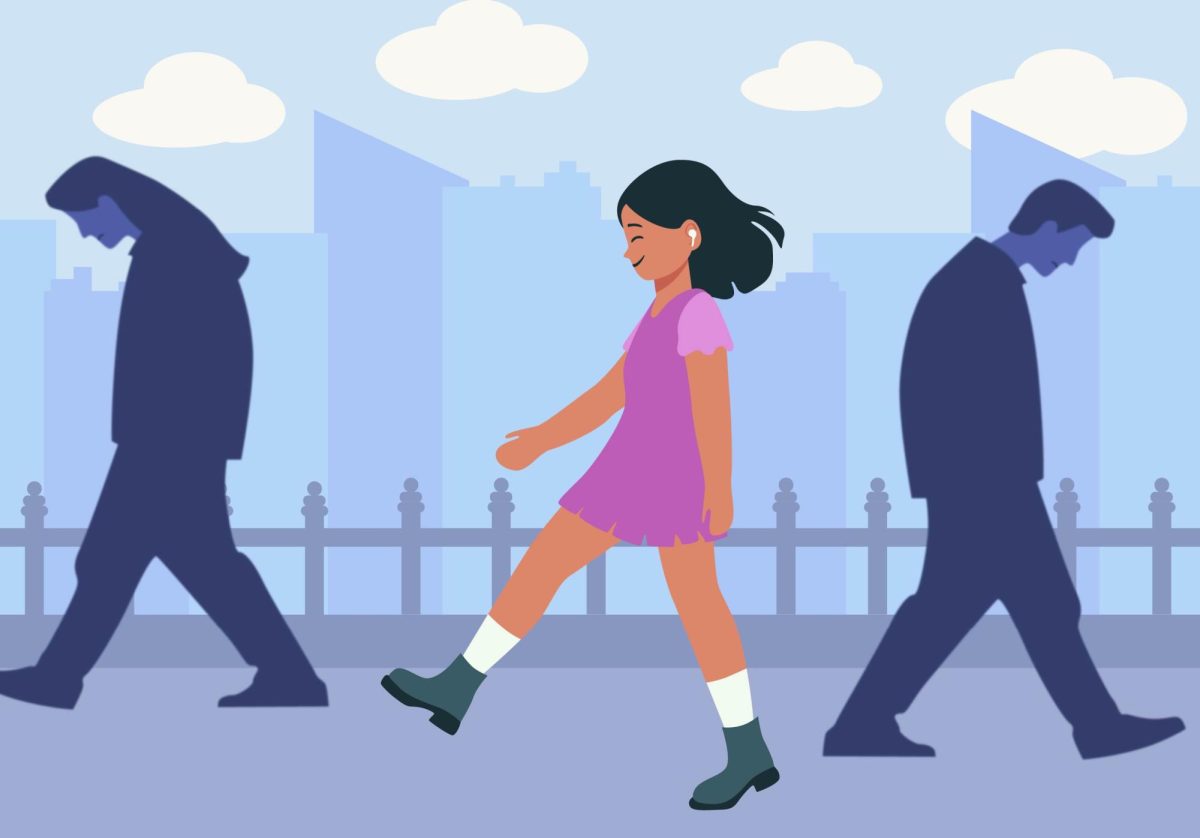The first thing I noticed as I walked up First Street was the festival. Music audible from down the block, tents, vendors and the hubbub of a large group of people enjoying themselves.
The second thing I noticed was the protestors.
Hudson, Wisconsin’s inaugural pride festival had not come without opposition. Riled-up conservatives had worked themselves into a frenzy over just about every event on the schedule, with the inclusion of a drag queen story hour drawing particular ire.
I had expected pensioners in polo shirts: a small group of infuriated but mostly non-threatening seniors slinging Scripture at anyone who ventured too close, but mostly minding their own business.
The reality was very different.
A dozen black-clad, masked figures stood just off the sidewalk, chanting through a megaphone. Most were young and middle-aged men, but I could feel the eyes of one young woman fixed on me, inscrutable behind a black face mask and sunglasses.
Any plausible deniability about their ideology was dispelled by the “white lives matter” sign one carried.
It was a clear reminder of the ways threats and violence have escalated against the LGBTQ+ community in recent years. Fascists on the streets of Hudson are far from an isolated phenomenon.
Thirty-one members of the white supremacist organization Patriot Front were arrested last year on a charge of conspiracy to riot after showing up with riot gear and a smoke grenade to a Pride celebration in Coeur d’Alene, Idaho.
As a trans person, I knew how I was supposed to feel in that moment: intimidated, othered and out of place — even in the town where I grew up.
We often associate queer spaces with urban centers, and it is true that cities like New York and San Francisco have historically been at the vanguard of the fight for queer liberation.
The Stonewall riot of 1969 is often considered a pivotal moment in a movement that started off with a radical edge, one that was often led by trans women of color and, in many cases, built in solidarity with other movements at the time, most notably the anti-war movement.
Today, meanwhile, pride is mainstream in major cities across the country. Pride Twin Cities is larger than ever, expanding across I-94 from Loring Park into the Sculpture Garden for the first time; meanwhile, the website for this year’s Pride Parade features screen-filling logos for Delta Airlines and other sponsors above the parade’s lineup.
But this pinkwashed facade is not reflective of the reality many queer people live in every day.
Rural areas continue to be hotbeds of hostility, as the Little Theatre in New London, Minnesota, found out last year when selecting a drag performer for an artist residency.
“Within a month I found out that almost over a dozen churches had gotten together for an emergency meeting to discuss what [our] project meant and how they should handle it,” said Bethany Lacktorin, the theater’s director. “The pastor said, ‘If you pursue this, you have been warned.’ He absolutely was threatening us as an organization, and he wasn’t kidding.”
Meanwhile, in the metro, tensions remain between a moderate establishment and the grassroots organizers who see TC Pride — and many of its attendees — as forgetting their roots.
“For us, it’s really about getting people to understand what the point of [Stonewall was], which was securing rights for black and brown trans people primarily, who were bearing the brunt of these attacks and raids on bars and gathering spaces,” said Jae Yates, an organizer with the Twin Cities Coalition for Justice for Jamar (TCC4J).
Each year, TCC4J helps lead Taking Back Pride, a disruption of the annual pride parade seeking to draw attention to police brutality and other ongoing issues faced by queer and trans people of color, along with a broader dissatisfaction with other aspects of corporate pride.
“We are protesting the presence of corporations and the FBI having a booth in the pride in the park section,” Yates said. “What we’re trying to do, more specifically, is to get people to understand these people are not your friends.”
“They’re here so long as they can cash in on you,” Yates continued. “They don’t care about you being liberated.”
The frustration with commercialization is not limited to TC Pride. Corporations that have tried to play both sides after conservative criticism have suffered and rightly so. Target was criticized after deciding to pull pride merchandise from some of its stores and the cancellation of Bud Light’s promotion with a trans influencer led numerous gay bars, including the Saloon in downtown Minneapolis, to pull Anheuser-Busch beers from sale. Across the country, Starbucks workers announced plans to strike through this week over bans on Pride-themed decorations.
What should we learn from this?
Queer people and allies cannot afford to wait for corporations to decide that we are worth defending.
We cannot allow our enemies to decide which of us are to be tolerated in the public space and which are to be stigmatized and shunned.
We must remember that a necessary consequence of our love for one another is righteous fury at the forces that seek to use us, whether as a target for persecution or as a marketable demographic.
“It’s not about us being visible. It’s about taking away power from the state to oppress us,” Yates said. “That’s what’s resonating with people more and more.”
As June draws to a close and we reflect on queer history, it is not enough to celebrate queer identities. We must also be mindful of the justified wrath that won us the ability to do so in the first place and understand that our work is not yet over.













